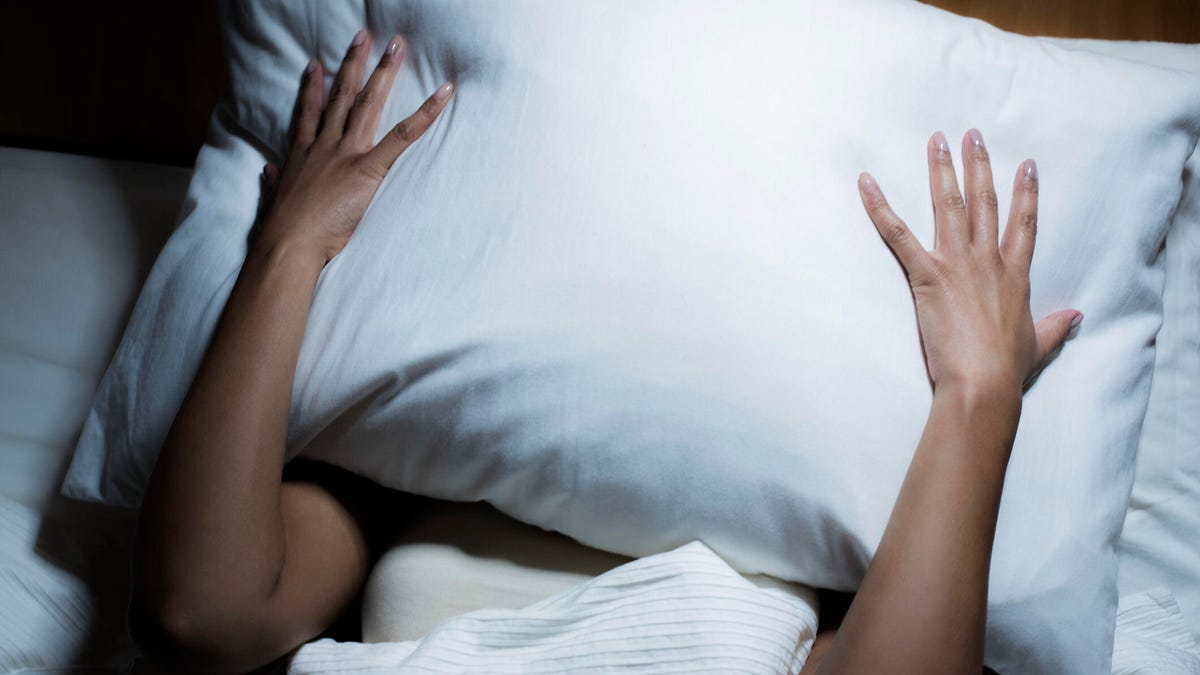Can you really die from not sleeping?
Short answer: It's complicated.

You may have heard the story of Randy Gardner, the boy who once stayed awake for 11 days and 24 minutes straight -- that's 264.4 hours. Although Gardner exhibited physical, mental and emotional degeneration and experienced severe insomnia decades later, he's alive in his 70s today.
Gardner's 11-day experiment didn't kill him, but anyone who's experienced total sleep deprivation can likely vouch that the end feels near.
Symptoms of sleep deprivation are progressive: The more sleep debt you rack up, the worse you feel. After a night or two of poor sleep, you feel irritable, cranky, unmotivated and sluggish.
After a week of short slumbers, you may find yourself snapping at people, crying over nothing, battling headaches, losing focus, overeating or under-eating and scraping by on stimulants. Go without sleep longer than that, and you may begin to experience hallucinations, paranoia, delusions and other scary symptoms.
How long will your body allow you to survive on short sleep? And what about complete lack of sleep -- can it really kill you? CNET talked to sleep specialists to find out.
Can you die from not sleeping?
Sleep deprivation won't kill you -- directly, anyway.
"There is no evidence that a lack of sleep can directly kill you," deadpans Annie Miller, sleep specialist and psychotherapist at DC Metro Sleep and Psychotherapy.
One extremely rare, hereditary disease seems to cause death via sleep deprivation. Fatal familial insomnia (FFI) starts with mild insomnia but progresses quickly, eventually leading to a complete inability to sleep. FFI patients also exhibit symptoms of dementia, difficulty controlling the body and degeneration of autonomic functions, such as digestion and temperature regulation.
Still, this is a neurodegenerative disease that affects the brain, Miller says, and "it's more likely that FFI patients die from neural degeneration, as opposed to lack of sleep."
Interestingly, Miller encourages people not to be afraid of sleep deprivation, despite the known ill effects. "I think people are afraid of not sleeping and it contributes to the worsening of insomnia," she says. "Think about parents of newborns. We are built to withstand a certain degree of sleep deprivation."
Miller has a good point. Humans seem to be relatively capable during periods of sleep deprivation, complete or partial, although daily tasks feel more difficult and mundane. Randy Gardner would certainly say so.
How lack of sleep can kill you
Sleep deprivation increases your chances of accidents, including car crashes.
Yes, you just read that sleep deprivation can't kill you, except in the case of the rare genetic disease FFI. Although it's true there's no hard evidence that people die directly from sleep deprivation, people can (and do) die from events related to sleep deprivation.
Lack of sleep can kill you indirectly by increasing your overall morbidity risk, says Dr. Shelby Harris, licensed psychologist, board-certified behavioral sleep medicine specialist and neurology professor. Medically, chronic sleep inadequacy can increase morbidity in a number of ways, she says, including:
- Impaired immune functioning
- Weight gain, which increases your risk for cardiovascular disease, stroke, some cancers, type 2 diabetes, sleep apnea and high blood pressure
- Increased risk of depression, which increases the risk of suicide
- Psychosis, which may lead to self-harm
Complete and partial sleep deprivation also heavily affect your risk of accidents, falls and injuries. For example, operating heavy machinery (including driving a car) becomes extremely dangerous when you're running on little to no sleep.
Sleep deprivation may also increase your chances of dying from an underlying health issue that already exists. For example, people have died during video gaming marathons which, on the surface, seems due to sleep deprivation. However, autopsies reveal the true cause is likely a combination of exhaustion and heart failure, heart attack or stroke.
Symptoms of severe sleep deprivation
Severe sleep deprivation can make you feel like you're in an alternate reality.
Though lack of sleep won't kill you directly, you might feel like you're on your way out if you're experiencing severe sleep deprivation. If you stay up for more than 48 hours on end, you'll likely battle intense physical and mental symptoms, including:
- Memory loss
- Inability to focus on normal daily tasks
- Muscle weakness
- Tremors
- Heightened anxiety
- Paranoia
- Hallucinations
- Delusions (believing false information)
- Rapid heart rate
- Inability to make decisions
- Poor reaction time
- Getting tongue-tied
- Physical illness (due to impaired immune function)
If you can't fall asleep and are experiencing symptoms similar to the above, contact a doctor right away. By that point, your risk of accidents is high and it's best to stay safe by having someone else drive you to a medical facility.
How long can you go without sleeping?
There's no solid answer to the question of how long humans can survive without sleeping. Apparently, people can live a rather long time with zero sleep, as proved by Randy Gardner and other people who intentionally deprived themselves of sleep for record-breaking purposes.
It's clear that ill effects start to set in after just one day of total sleep deprivation and after a couple of nights of partial sleep deprivation, so it's best to always strive to get as much sleep as possible.
Are you getting enough sleep?
"Enough sleep" is a highly individual concept -- and the eight-hour rule comes from wishy-washy origins. You'll know if you don't get enough sleep.
A healthy, rested person should feel alert, have a healthy appetite, and have enough motivation and discipline to complete daily obligations. If you're experiencing heightened irritability, cravings for unhealthy food or other appetite changes, lack of motivation, depression or anxiety, physical fatigue or an inability to focus, you probably need more sleep.
Read more: 5 reasons to prioritize better sleep in 2021

